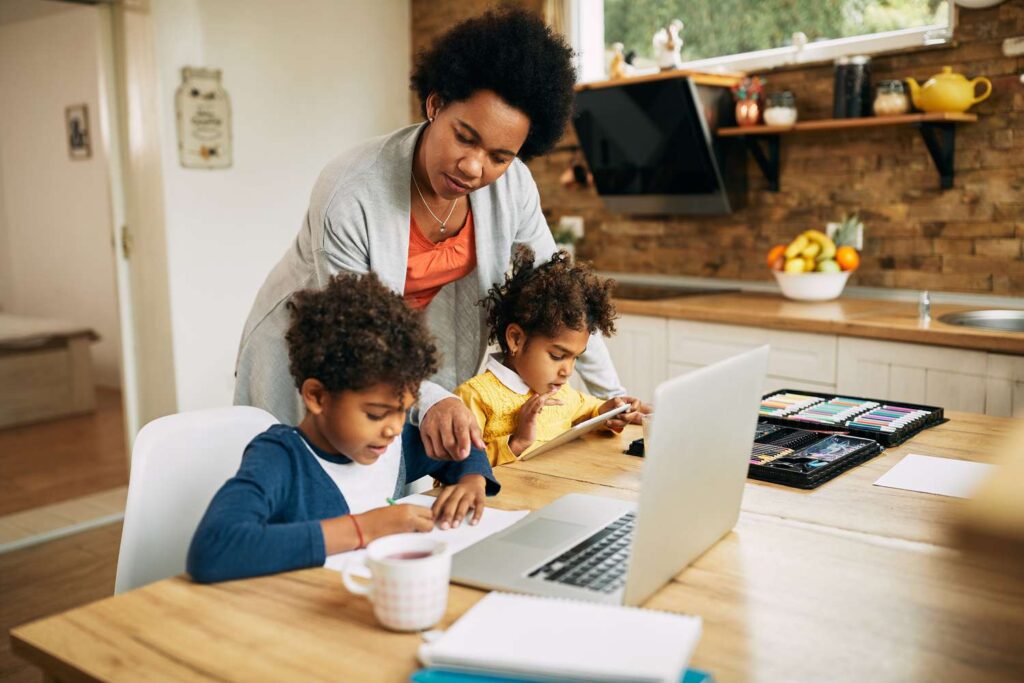In today’s fast-paced, ever-evolving world, the cracks in the traditional education system are becoming more apparent than ever. As the demands of society shift, so do the expectations placed on children within the confines of classrooms. The result? A growing number of parents are reconsidering conventional schooling, instead opting for homeschooling or unschooling—a flexible and more personalized approach to education that encourages creativity, critical thinking, and real-world skills.
In the thought-provoking Josh Talks video featuring Vidhi Jain, a homeschooling advocate and practitioner, the pitfalls of modern schooling and the benefits of unschooling are laid out in striking detail. Drawing on her personal experiences, as well as numerous success stories, Jain invites parents and educators to explore a different path for their children’s learning journey—a path less traveled but rich in opportunities.
In this blog, we will delve into the key ideas shared by Vidhi Jain, examine the core principles behind homeschooling and unschooling, and explore practical steps for rejecting the modern education system in favor of an approach that truly nurtures a child’s potential.

The Modern Education System: Why Is It Failing?
Before exploring alternatives, it’s crucial to understand the core issues with modern education. Traditional schooling systems across the globe share a common problem: they are designed for uniformity and standardization, rather than fostering individual growth and creativity.
- Factory-Model Education: Schools were initially designed to meet the needs of the Industrial Revolution—a time when uniformity and compliance were highly valued. Today, however, this approach is outdated and fails to cater to the diverse talents and interests of students.
- Memorization Over Understanding: Traditional schooling often emphasizes rote memorization over critical thinking. Students are judged on their ability to recall facts rather than their understanding of concepts or their ability to apply knowledge to real-world problems.
- Stifling Creativity: Schools often prioritize conformity over creativity. Children are discouraged from thinking outside the box or pursuing unconventional paths, which hinders the development of innovative minds.
- A Narrow Definition of Success: Schools tend to promote a narrow view of success, which is measured by grades, test scores, and degrees. However, success in the real world is much broader, encompassing qualities like emotional intelligence, resilience, and practical skills that schools rarely teach.
As Vidhi Jain points out, the modern education system is leaving many students disengaged and uninspired. But there’s hope: homeschooling and unschooling offer an alternative path that can unlock a child’s true potential.
What Is Homeschooling?
Homeschooling is an educational approach where parents take direct responsibility for their child’s learning. Instead of sending children to traditional schools, parents design and implement a curriculum that is tailored to their child’s interests, strengths, and learning style. Homeschooling offers flexibility in terms of what is learned, how it is taught, and the pace at which the child progresses.
While homeschooling often follows a structured approach, incorporating lessons and materials that resemble traditional schooling, unschooling takes it a step further by removing formal instruction altogether.
The Rise of Homeschooling in India and Globally
Homeschooling is gaining momentum not only in India but also globally. According to Vidhi Jain, there are more than 10,000 unschooling families in India alone, and in the U.S., over 500,000 families have chosen to homeschool their children. Interestingly, many of these families include teachers who, after witnessing the flaws in the school system firsthand, decided to protect their children from it.
Benefits of Homeschooling:
- Customized Learning: Homeschooling allows for a highly personalized education. Children can learn at their own pace, delve deeper into subjects that interest them, and receive one-on-one attention from their parents or tutors.
- Flexible Schedule: With homeschooling, learning doesn’t have to adhere to a rigid timetable. Parents can structure the school day around their family’s needs, allowing for more free time and less stress.
- Real-World Learning: Homeschooling provides opportunities for children to learn through practical experiences—whether it’s visiting a museum, participating in community projects, or exploring nature.
- Strong Family Bonds: Homeschooling fosters close relationships between parents and children. Learning becomes a shared experience, and family values play a significant role in shaping the child’s education.
- Holistic Development: Unlike traditional schools, where academic performance often takes precedence over personal growth, homeschooling nurtures the whole child—emotionally, intellectually, and socially.
What Is Unschooling?
Unschooling is a subcategory of homeschooling, but it is far less structured. Instead of following a set curriculum, unschooling allows children to direct their own learning based on their interests and passions. It’s a child-led, experience-based approach to education that emphasizes learning through doing, exploring, and living.
The Philosophy Behind Unschooling:
The core belief behind unschooling is that children are natural learners who are curious about the world. When given the freedom to pursue their own interests, they will naturally gravitate toward meaningful, real-world learning experiences.
Vidhi Jain explains how unschooling has allowed her daughter, who has never been to a traditional school, to explore her interests in a deep and meaningful way. At the age of 15, her daughter is already an accomplished artist, makeup artist, filmmaker, and photographer—all without the constraints of a formal education.
Success Stories from the Unschooling Community:
One of the most inspiring aspects of unschooling is the success stories of individuals who have pursued their passions from a young age. Vidhi Jain shares the story of Malvika Joshi, an unschooled student who gained admission to the prestigious Massachusetts Institute of Technology (MIT) without a high school diploma. Malvika’s unschooling background gave her the opportunity to develop practical skills and a deep understanding of computer science—skills that traditional schooling often overlooks.
Another example Jain mentions is her daughter, who, at 15, is excelling in various creative fields. This kind of hands-on, passion-driven learning is at the heart of the unschooling philosophy.
How to Reject the Modern Education System: Steps to Begin Homeschooling or Unschooling
If you’re a parent considering homeschooling or unschooling for your child, the transition can seem daunting at first. However, with careful planning and an open mindset, you can create a learning environment that allows your child to thrive. Here are some steps to help you get started:
1. Do Your Research
Before making any decisions, it’s important to thoroughly research homeschooling and unschooling. Learn about the different approaches, talk to other homeschooling families, and explore the legal requirements for homeschooling in your country or state.
Vidhi Jain emphasizes that homeschooling and unschooling are growing communities in India and around the world, which means there are many resources and support networks available to guide you through the process.
2. Define Your Educational Philosophy
One of the most empowering aspects of homeschooling and unschooling is the freedom to create an educational philosophy that aligns with your family’s values. Do you want to focus on hands-on learning? Encourage your child to explore the arts? Develop strong critical thinking skills? Defining your philosophy will help guide your approach to education.
3. Involve Your Child in the Decision
Homeschooling and unschooling are collaborative processes. It’s essential to involve your child in the decision-making process, especially if they’re older. Discuss their interests, goals, and preferences for how they want to learn. This will ensure that their education is truly personalized and meaningful to them.
4. Create a Flexible Learning Plan
While unschooling encourages a more unstructured approach, it’s still helpful to create a flexible learning plan. This doesn’t mean adhering to a strict schedule, but rather setting goals and providing opportunities for your child to explore different subjects and activities.
In Jain’s case, her daughter’s education is guided by her passions. Whether it’s filmmaking, photography, or makeup artistry, the focus is on helping her develop real-world skills in areas that matter to her.
5. Embrace Real-World Learning Opportunities
One of the biggest advantages of homeschooling and unschooling is the ability to learn from real-life experiences. Encourage your child to pursue internships, volunteer work, community projects, or apprenticeships that align with their interests. These experiences provide invaluable learning that goes far beyond what a textbook can offer.
6. Connect with a Support Network
Homeschooling and unschooling can sometimes feel isolating, but it doesn’t have to be. There are numerous homeschooling communities, both online and offline, where you can connect with like-minded families, share resources, and offer support. Vidhi Jain points out that there are already 10,000 unschooling families in India, and the numbers are growing globally.
7. Be Patient and Trust the Process
Lastly, it’s essential to be patient and trust the learning process. Homeschooling and unschooling are not about quick results or following a set path. Every child learns at their own pace, and the most important thing is to nurture their curiosity, creativity, and love for learning.
Breaking Free from the System: A Call to Action
As Vidhi Jain eloquently states in her talk, learning is a lifelong process that doesn’t need to be confined to the walls of a classroom. By rejecting the modern education system in favor of homeschooling or unschooling, parents can offer their children the freedom to explore, create, and develop skills that truly matter in the real world.
Whether you’re considering homeschooling full-time or simply exploring the idea of taking a gap year, the possibilities are endless. The world is filled with opportunities for hands-on learning, and with the right support, your child can thrive outside the confines of traditional schooling.
Final Thoughts:
In today’s world, where traditional education often falls short of preparing children for the future, homeschooling and unschooling offer a refreshing alternative. By rejecting the factory model of schooling and embracing a more personalized, flexible approach, parents can help their children develop a love for learning, critical thinking skills, and practical knowledge that will serve them well in life.
It’s time to rethink education. It’s time to break free from the system.
Homeschooling is an educational approach where parents take direct responsibility for their child’s learning at home, rather than sending them to a traditional school. Unlike conventional schooling, which follows a standardized curriculum and schedule, homeschooling allows for a personalized and flexible learning experience tailored to the child’s individual needs and interests. It focuses on customized education, real-world experiences, and one-on-one attention.
Unschooling is a child-led educational approach where learning is driven by the child’s interests and curiosity, rather than a fixed curriculum. The benefits of unschooling include enhanced creativity, critical thinking, and practical skills development. Unlike traditional education, which often emphasizes rote memorization and standardized testing, unschooling encourages real-world learning, self-motivation, and deeper engagement with subjects the child is passionate about.
To get started with homeschooling or unschooling, parents should first research the educational approaches and understand the legal requirements in their country or state. Next, define an educational philosophy that aligns with their family values and involve their child in the decision-making process. Create a flexible learning plan that includes real-world learning opportunities and connect with homeschooling communities for support and resources. Being patient and adaptable is key to successfully implementing these alternative education methods.

